第11章
As I was too young to accompany my uncles on their hunting and plundering expeditions, John naturally became my guardian and tutor--that is to say, my jailor and tormentor. I will not give you all the details of that infernal existence. For nearly ten years I endured cold, hunger, insults, the dungeon, and blows, according to the more or less savage caprices of this monster. His fierce hatred of me arose from the fact that he could not succeed in depraving me; my rugged, headstrong, and unsociable nature preserved me from his vile seductions. It is possible that I had not any strong tendencies to virtue; to hatred I luckily had. Rather than do the bidding of my tyrant I would have suffered a thousand deaths. And so I grew up without conceiving any affection for vice. However, my notions about society were so strange that my uncles' mode of life did not in itself cause me any repugnance. Seeing that I was brought up behind the walls of Roche-Mauprat, and that I lived in a state of perpetual siege, you will understand that I had precisely such ideas as any armed retainer in the barbarous ages of feudalism might have had. What, outside our den, was termed by other men assassinating, plundering, and torturing, I was taught to call fighting, conquering, and subduing. My sole knowledge of history consisted of an acquaintance with certain legends and ballads of chivalry which my grandfather used to repeat to me of an evening, when he had time to think of what he was pleased to call my education. Whenever I asked him any question about the present time, he used to answer that times had sadly changed, that all Frenchmen had become traitors and felons, that they had frightened their kings, and that these, like cravens, had deserted the nobles, who in their turn had been cowardly enough to renounce their privileges and let laws be made for them by clodhoppers. I listened with surprise, almost with indignation, to this account of the age in which I lived, for me an age of shadows and mysteries. My grandfather had but vague ideas of chronology; not a book of any kind was to be found at Roche-Mauprat, except, I should say, the History of the Sons of Aymon, and a few chronicles of the same class brought by our servants from country fairs. Three names, and only three, stood clear in the chaos of my ignorance--Charlemagne, Louis XI, and Louis XIV;because my grandfather would frequently introduce these into dissertations on the unrecognised rights of the nobles. In truth, Iwas so ignorant that I scarcely knew the difference between a reign and a race; and I was by no means sure that my grandfather had not seen Charlemagne, for he spoke of him more frequently and more gladly than of any other man.
But, while my native energy led me to admire the exploits of my uncles, and filled me with a longing to share in them, the cold-blooded cruelty they perpetrated on returning from their expeditions, and the perfidious artifices by which they lured their dupes to the castle, in order to torture them to extort ransom, roused in me strange and painful emotions, which, now that I am speaking in all sincerity, it would be difficult for me to account for exactly. In the absence of all ordinary moral principles it might have been natural for me to accept the theory which I daily saw carried into practice, that makes it right; but the humiliation and suffering which my Uncle John inflicted on me in virtue of this theory, taught me to be dissatisfied with it. I could appreciate the right of the bravest, and I genuinely despised those who, with death in their power, yet chose life at the price of such ignominy as they had to bear at Roche-Mauprat. But I could only explain these insults and horrors heaped on prisoners, some of them women and mere children, as manifestations of bloodthirsty appetites. I do not know if I was sufficiently susceptible of a noble sentiment to be inspired with pity for the victim; but certain it is that I experienced that feeling of selfish commiseration which is common to all natures, and which, purified and ennobled, has become charity among civilized peoples. Under my coarse exterior my heart no doubt merely felt passing shocks of fear and disgust at the sight of punishments which I myself might have to endure any day at the caprice of my oppressors; especially as John, when he saw me turn pale at these frightful spectacles, had a habit of saying, in a mocking tone: